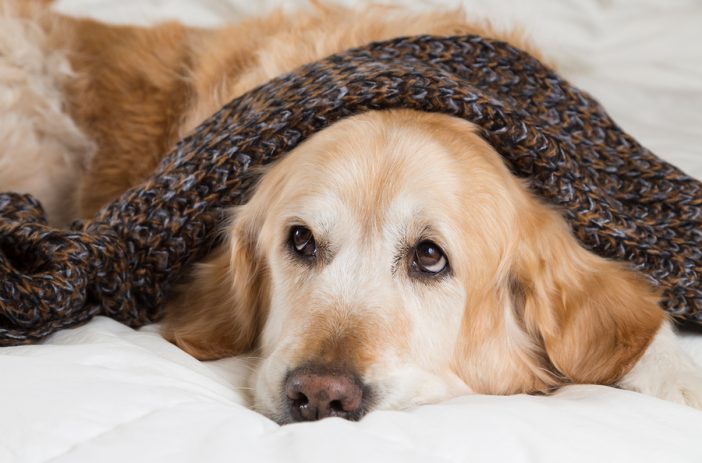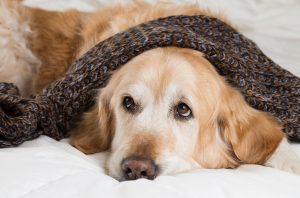
I am a veterinary surgical oncologist at a teaching institution. I’ve also spent three years in general practice and feel like I have a good relationship with my RDVMs (referring veterinarians), but recently, I read some things that have suggested some animosity between these two groups. And so, we decided to try to come together. Here are my top five things GPs can do to work with their specialist DVMs.
1. Records
Something that we all share is our hatred of records. They are time consuming and it takes even more time to get it right. The RDVM records that are sent with each case vary wildly in the quality of the presentation and content. Sometimes it is 40 pages of faxed records, in hand written, illegible chicken scratch that resembles the musing of a paranoid schizophrenic.
Sometimes it is a beautifully typed letter that is loosely in SOAP format, outlining the case with the signalment, history, physical examination findings, pertinent diagnostics, assessment and plan. When it is the latter, patient care is always going to be better because it is seriously hard to troll through years of hand written records with no direction as to what is pertinent to the current case. Please send something that you would be proud for the owner to see and read.
2. Be understanding when some tests are repeated
 Please be understanding when we decide to repeat a diagnostic test done in your practice. There are several reasons why a specialist may choose to do this, but it is never a money grab or an intentional insult. It may be that enough time has passed that the bloodwork or radiographs may have changed. Or it may also be that the Xray machine in a specialist practice is better quality and a radiologist is going to read the Xrays or do the ultrasound. We may be making important clinical decisions based on these tests and feel more comfortable when we have them done in-house. There is also the possibility that your radiographs are not diagnostic quality. If our radiologist assesses that your radiographs are not diagnostic quality, I am bound the repeat them.
Please be understanding when we decide to repeat a diagnostic test done in your practice. There are several reasons why a specialist may choose to do this, but it is never a money grab or an intentional insult. It may be that enough time has passed that the bloodwork or radiographs may have changed. Or it may also be that the Xray machine in a specialist practice is better quality and a radiologist is going to read the Xrays or do the ultrasound. We may be making important clinical decisions based on these tests and feel more comfortable when we have them done in-house. There is also the possibility that your radiographs are not diagnostic quality. If our radiologist assesses that your radiographs are not diagnostic quality, I am bound the repeat them.
Instead of getting frustrated, call your friendly Xray machine rep and ask them to come out and help you get the quality of radiographs that you want. (Side note: back in the day when I was in general practice, I worked in a practice with a tanning salon in the same strip mall [so glamorous]. This was 1998, so the machine was old-school. If there were too many people tanning, it sucked power from our Xray unit and it threw all of our settings into disarray, making it impossible to get diagnostic quality films. So, I get it, there are challenges to getting great films – but life is better now, we have digital radiography and tanning salons are on their way out.)
3. Cut us some slack when we don’t call you right away with an update
We understand that you are anxious to hear about how your patient is doing, but please try to understand that it is not always realistic for us to call immediately. We honestly do our best, but all of our RDVMs feel this way and usually, we are running around all day trying to get our diagnostics done or in surgery. Most days, when I finally have time to sit down and call referring veterinarians, everyone is closed for the day.
I have had RDVMs demand twice daily updates on their patients. Please try to remember that all veterinarians are running crazy all day, whether they are specialists or GPs and most of the time, the lack of a phone call is simply due to a crazy day and we all have crazy days. Also, don’t be shy. If this patient is extremely important to you, please call us and we will find a way to connect.
 4. Trust us
4. Trust us
It is critical that you trust the specialist that you are sending your cases to. You need to trust that they are going to do the best for your patients and you need to trust that they are not going to throw you under the bus. If you have doubts on either of these fronts, I suggest finding another specialist to refer your cases to. You also have to trust that we are all doing the best that we can and we are working together to give our patients the best care. Enough said.
5. Please call us if you euthanize one of our patients.
It’s a great sin to not let the RDVM know a patient in our care has died or been euthanized, and for good reason. In contrast, it is extremely rare that a RDVM calls me to let me know that one of our mutual patients has been euthanized. This can put specialists in an awkward position when calling a client to check on their patient, or having staff call them to remind them about an upcoming appointment only to discover the patient is deceased. This can be very upsetting for the client and for us. Please let us know. We care about these patients too.
Also, from a purely academic perspective, this information can be very useful if we are doing a retrospective study and we need information on survival times and cause of death. Not as touching a reason for requesting this information, but this information can help to contribute to the greater picture of understanding some of the diseases that we all treat.
Whether you are a specialist or a GP, we are all veterinarians. Our lives and days are much more similar than they are different and there is much more that connects us than separates us. As a profession, we all have to give each other a break sometimes and recognize that this job is just really hard. We have to stick together.
 4. Trust us
4. Trust us